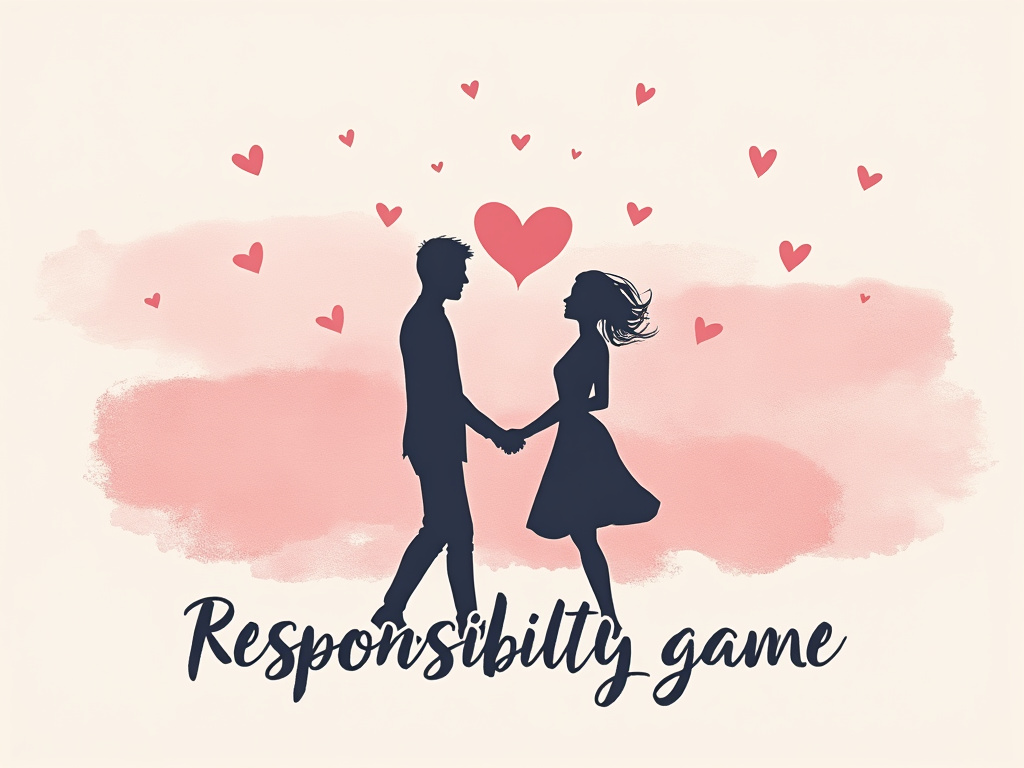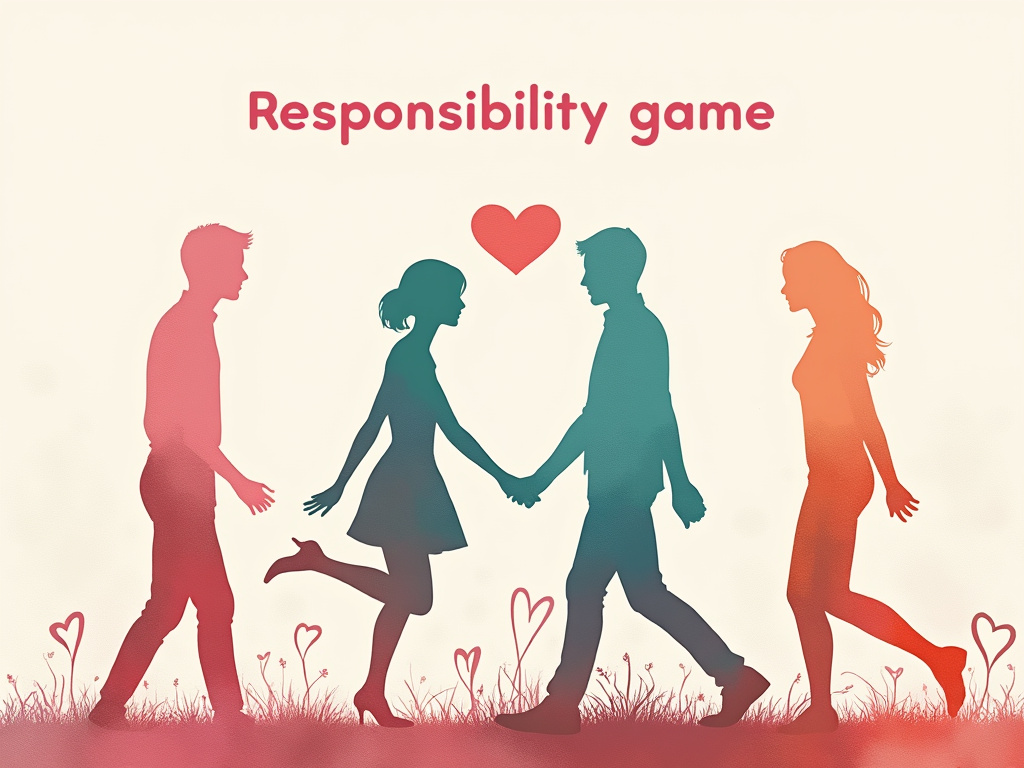
Why We Need to Stop Playing the Blame Game: Moving Beyond Assigning Fault in Modern Relationships
Reading time: 8 minutes
Table of Contents
- Understanding the Blame Game in Modern Relationships
- The Psychology Behind Blame Assignment
- How Digital Dating Amplifies Blame Patterns
- Breaking the Cycle: Practical Strategies
- Building Accountability Without Blame
- Communication Alternatives That Work
- Your Relationship Transformation Roadmap
- Frequently Asked Questions
Understanding the Blame Game in Modern Relationships
Ever find yourself in a heated text exchange where both parties are desperately trying to prove who’s “right”? You’re witnessing the blame game in action—a destructive pattern that’s become particularly toxic in our digital dating landscape. The blame game isn’t just about pointing fingers; it’s a defensive mechanism that prevents genuine connection and growth.
In today’s hyperconnected world, where we can screenshot conversations and replay interactions endlessly, the temptation to build a case against our partners has never been stronger. But here’s the reality: relationships built on scorekeeping and fault-finding are relationships destined to fail.
The Modern Dating Dilemma
Research from the Gottman Institute reveals that couples who engage in blame-heavy communication patterns have a 67% higher likelihood of relationship dissolution within the first two years. But what makes this particularly challenging in modern dating is how digital communication strips away crucial non-verbal cues, making misunderstandings more frequent and blame attribution easier.
Consider this scenario: Jake messages Sarah, “I noticed you didn’t respond to my text yesterday.” Sarah immediately feels defensive and fires back, “Well, you took three hours to reply to me last week!” Within seconds, they’re trapped in a cycle of blame and counter-blame, each trying to justify their behavior by highlighting the other’s failures.
The Psychology Behind Blame Assignment
Dr. Brené Brown’s research on vulnerability reveals that blame is simply a way to discharge pain and discomfort. When we feel hurt, disappointed, or confused in relationships, our instinct is to find someone or something to hold responsible. It’s a protective mechanism, but one that ultimately sabotages intimacy.
The Neuroscience of Defensive Responses
When we perceive blame, our amygdala triggers a fight-or-flight response. This neurological reaction makes thoughtful communication nearly impossible. Instead of processing what our partner is actually saying, we’re busy formulating our defense or preparing our counter-attack.
Blame vs. Accountability: The Critical Difference
How Digital Dating Amplifies Blame Patterns
Digital communication creates a perfect storm for blame-based interactions. Without tone of voice, facial expressions, or body language, we’re left to interpret messages through the lens of our own insecurities and past experiences. This often leads to attribution errors—we assume negative intent when none exists.
The Screenshot Culture Problem
Today’s dating culture has created what relationship expert Dr. Helen Fisher calls “evidence-based blame.” We screenshot conversations, save voicemails, and document interactions—not to understand our partners better, but to build cases against them. This behavior transforms intimate relationships into courtrooms where everyone’s guilty until proven innocent.
| Communication Type | Blame Potential | Misunderstanding Risk | Resolution Speed |
|---|---|---|---|
| Text Messages | High | 85% | Slow |
| Video Calls | Medium | 45% | Moderate |
| Voice Calls | Medium | 35% | Fast |
| In-Person | Low | 15% | Fast |
| Social Media | Very High | 90% | Very Slow |
Breaking the Cycle: Practical Strategies
Breaking free from blame patterns requires intentional effort and new communication tools. The goal isn’t to eliminate all conflict—healthy relationships need constructive disagreement. Instead, we’re aiming to transform destructive blame into productive dialogue.
The PAUSE Protocol
When you feel the urge to assign blame, implement the PAUSE protocol:
- Pause before responding
- Acknowledge your emotional state
- Understand the underlying need
- Seek to understand their perspective
- Engage with curiosity, not judgment
Real-World Application: The Late Response Scenario
Let’s revisit our earlier example with Jake and Sarah, but this time applying blame-free communication:
Blame-based approach: “You never respond to my texts on time. You obviously don’t care about this relationship.”
Accountability-based approach: “I noticed I felt anxious when I didn’t hear back from you yesterday. I’m wondering if everything’s okay, and I’d love to understand how we can better communicate about response times.”
Notice how the second approach focuses on personal experience rather than character assassination. It opens dialogue instead of shutting it down.
Building Accountability Without Blame
Accountability and blame are often confused, but they’re fundamentally different. Accountability is about ownership and growth; blame is about punishment and deflection. In healthy relationships, both partners take responsibility for their actions and their impact on the relationship dynamic.
The “I Notice” Framework
Replace blame statements with observation statements:
- Instead of: “You always cancel our plans”
- Try: “I notice we’ve rescheduled our last three dates, and I’m feeling disconnected”
This framework removes the accusatory tone while still addressing the issue. It creates space for your partner to respond thoughtfully rather than defensively.
Communication Alternatives That Work
Dr. John Gottman’s research identifies four communication patterns that predict relationship failure: criticism, contempt, defensiveness, and stonewalling. Blame feeds into all four. Here are research-backed alternatives:
The Soft Startup Technique
Begin difficult conversations with softness rather than harshness:
- State your feelings without blame
- Describe the specific situation objectively
- Express your needs clearly
- Make a specific request for change
Case Study: Emma and David’s Transformation
Emma and David, both 28, came to couples therapy after their relationship devolved into constant blame cycles. Emma would accuse David of being “emotionally unavailable,” while David would counter that Emma was “too needy and dramatic.”
Through therapy, they learned to reframe their communications:
Emma’s new approach: “I feel disconnected when we don’t talk about our days. Could we set aside 15 minutes each evening to check in with each other?”
David’s new approach: “I sometimes feel overwhelmed by intense conversations after work. Can we find a time when I’m more present to really connect?”
Six months later, their relationship satisfaction scores increased by 73%, demonstrating the power of blame-free communication.
Your Relationship Transformation Roadmap
Ready to break free from destructive blame patterns and build authentic connection? Here’s your actionable roadmap for transformation:
Week 1-2: Awareness Building
- Track your blame language – Notice when you use “you always” or “you never” statements
- Pause before responding to triggering messages or situations
- Practice the PAUSE protocol in low-stakes interactions first
Week 3-4: Communication Restructuring
- Implement “I notice” statements instead of accusations
- Ask curious questions rather than making assumptions
- Schedule regular check-ins with your partner to address issues before they escalate
Week 5-6: Accountability Integration
- Take ownership of your communication patterns without expecting your partner to change first
- Create agreements around digital communication that work for both parties
- Celebrate small wins when you successfully navigate conflict without blame
Remember: transformation takes time, and setbacks are part of the process. The goal isn’t perfection—it’s progress toward more authentic, connected relationships.
As we move toward an increasingly digital future, the ability to communicate without blame becomes even more critical. The couples who master this skill won’t just survive modern dating—they’ll thrive in it, creating relationships that are both resilient and deeply fulfilling.
What would your relationships look like if you approached every conflict as an opportunity for deeper understanding rather than an excuse to prove you’re right?
Frequently Asked Questions
How do I stop my partner from playing the blame game when I’m trying to change my own patterns?
Focus exclusively on your own communication without trying to control or change your partner’s responses. When they engage in blame, respond with curiosity: “I can hear that you’re frustrated. Help me understand what you need right now.” Your consistent non-defensive responses will gradually shift the dynamic, though it may take time for your partner to follow suit.
Is it possible to address serious relationship issues without any blame at all?
Absolutely. Addressing serious issues requires accountability, not blame. Focus on observable behaviors, their impact on you, and specific requests for change. For example: “When plans get cancelled last-minute, I feel anxious about our relationship. I need more notice when schedules change so I can adjust my expectations.” This addresses the issue directly while maintaining respect for both parties.
What if my partner accuses me of “not caring” when I try to stay calm during conflicts?
Staying calm doesn’t mean you don’t care—it means you care enough to communicate effectively. Explain this to your partner: “My calm response isn’t indifference; it’s my way of making sure we can actually hear each other and solve this together. I care too much about us to let emotions derail our conversation.” Then demonstrate your care through active listening and genuine engagement with their concerns.

Article reviewed by Maja Kovačević, Breakup Recovery Specialist | Healing Hearts & Rebuilding Self-Worth, on May 29, 2025
